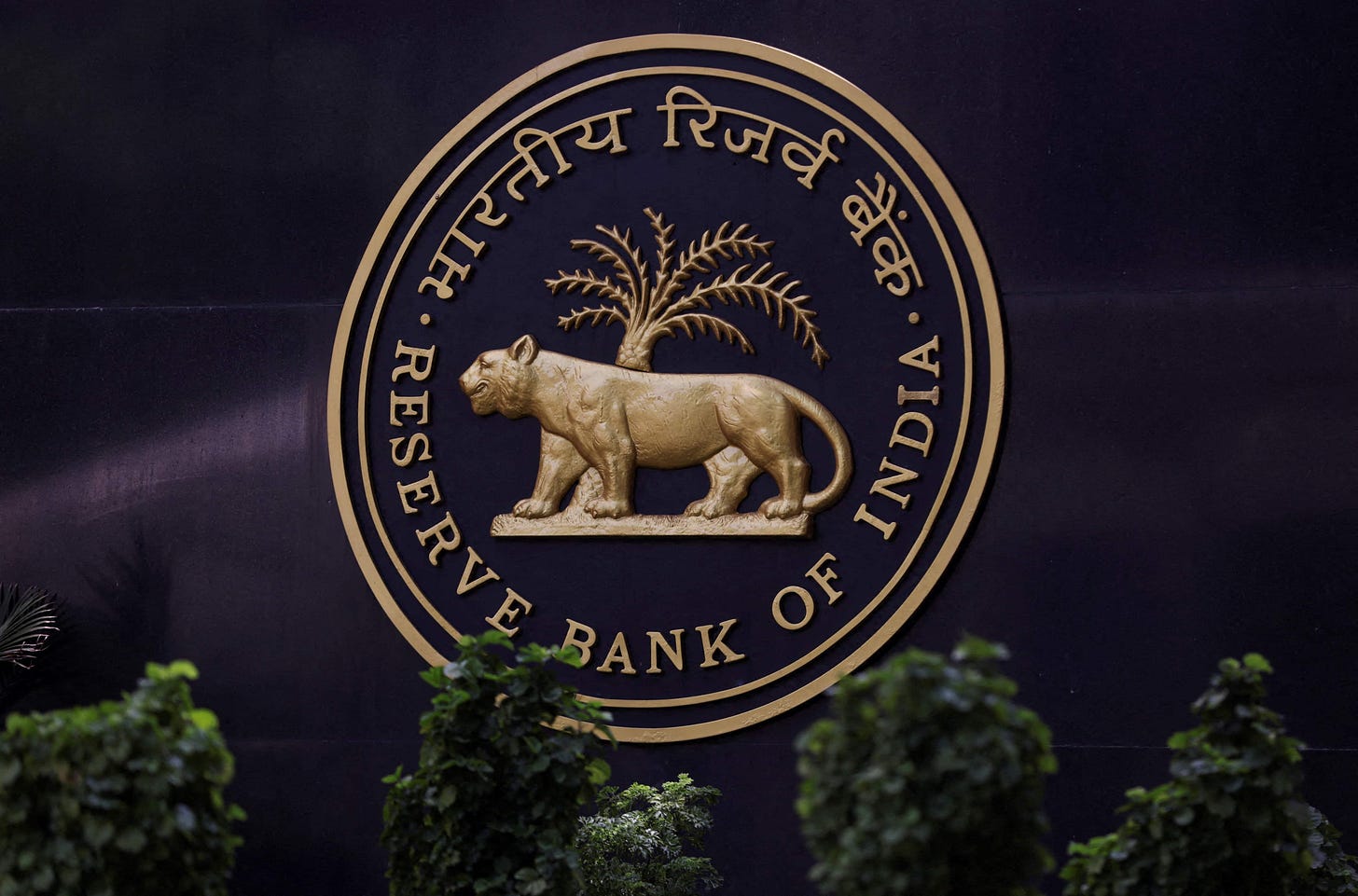RBI's Fintech Boost
Explore how RBI's recent decisions amplify fintech potential, fostering growth, transparency, and resilience in India's evolving digital financial ecosystem.
Dear Rise & Shine Community,
The Reserve Bank of India (RBI), in its latest Monetary Policy Committee (MPC) meeting, has unveiled a series of significant measures aimed at bolstering the fintech sector.
Led by RBI Governor Shaktikanta Das, the central bank's decisions include a substantial increase in payment limits for Unified Payments Interface (UPI)-based transactions, a push towards enhancing the regulatory framework for fintech entities, and a visionary move towards establishing a fintech repository. This comprehensive approach seeks to not only foster growth but also address emerging challenges within the digital financial landscape.
Enhanced Payment Limits for UPI Transactions in Critical Sectors
One of the pivotal announcements from the RBI is the elevation of payment limits for UPI transactions conducted in hospitals and educational institutions. The cap has been substantially raised from Rs 1 lakh to Rs 5 lakh per transaction.
This move is poised to facilitate larger transactions within these sectors, potentially streamlining financial operations for stakeholders in healthcare and education.
Recurring Online Transactions: Empowering Fintech in Mutual Funds, Insurance, and Credit Cards
In a bid to accommodate the evolving needs of consumers engaged in online financial transactions, the RBI has increased the e-mandate limit for recurring transactions.
Notably, the limit for online recurring transactions, including mutual fund subscriptions, insurance subscriptions, and credit card transactions, has been raised from Rs 15,000 to Rs 1 lakh.
Currently, 8.5 crore registered e-mandates are processing nearly Rs 2,800 crore of transactions per month, underscoring the significance of this adjustment.
Fintech Regulatory Framework: A Repository for Progress
Recognizing the dynamic nature of the fintech ecosystem, the RBI has unveiled plans to establish a fintech repository. Expected to be operational by April 2024 or earlier, this repository will be managed by the RBI's Innovation Hub.
The rationale behind this move is to gain a deeper understanding of developments within the fintech landscape, especially as traditional financial entities increasingly collaborate with fintech counterparts. Fintechs are encouraged to voluntarily contribute information to this repository, ushering in a new era of transparency and accountability.
Regulating Web Aggregation of Loan Products: Fostering Customer Centricity and Transparency
Acknowledging concerns related to web aggregation of loan products potentially harming consumer interests, the RBI has decided to institute a regulatory framework for this domain.
The move aims to enhance customer centricity and transparency in digital lending, particularly in the context of multiple online marketplaces that collaborate with lenders to offer credit cards and personal loans.
By introducing guidelines for web aggregation of loan products, the RBI seeks to strike a balance between fostering innovation and ensuring consumer protection.
Cloud Facility for the Financial Sector: Elevating Data Security and Scalability
In an era where data is increasingly central to financial operations, the RBI has embarked on building a dedicated cloud facility for the financial sector. Recognizing the importance of data security, integrity, and privacy, the facility aims to provide better scalability and business continuity for banks and financial institutions.
This initiative is poised to be rolled out in a calibrated fashion over the medium term, underscoring the RBI's commitment to staying ahead of the curve in technological advancements.
The recent decisions emanating from the RBI's MPC meeting underscore the central bank's proactive approach towards fortifying the fintech sector.
From elevating payment limits for critical transactions to introducing a repository for fintech lenders, the RBI's measures signal a commitment to fostering growth while addressing emerging challenges.
The increased e-mandate limits, regulatory framework for web aggregation, and the establishment of a dedicated cloud facility all contribute to a comprehensive strategy aimed at ensuring the stability, security, and transparency of India's rapidly evolving fintech ecosystem.
As these measures take shape, stakeholders in the fintech industry will need to adapt to the changing regulatory landscape while leveraging the newfound opportunities for growth and innovation.
The RBI's forward-looking initiatives lay the groundwork for a resilient and dynamic fintech sector that can navigate the complexities of the digital financial landscape with confidence and agility.
Thanks for being a part of the Rise & Shine community!
Thank you for reading our newsletter!💛
Join our community on LinkedIn.


